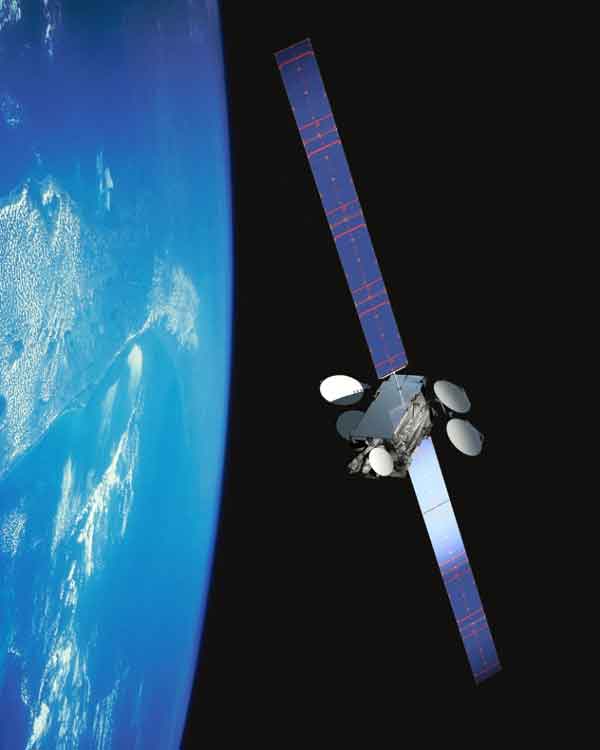The significance of intelligence has been recognized as one of the oldest bulwark of the art of statecraft. The treatises of Sun Tzu and Kautilya have highlighted the importance of intelligence gathering. No doubt, knowledge about the enemy plays an important role in deciding the fate of a battle, military confrontation and hence the survival of a country.
The main purpose of intelligence gathering is to provide adequate and timely information to policy makers that would help them to make informed decisions. In the contemporary world, where all the states are competing with each other, states don’t much rely on the traditional methods of intelligence gathering. Though the human intelligence gathering is still an important tool of intelligence collection but at present almost all the intelligence services gather intelligence through the cyber modes.
India is one of the leading victims of cyber-crime and the cyber security market is estimated at around US $ 218 million.
In the 21st century cyber espionage has become a dangerous threat for states’ security in the anarchical world order. In this highly technological world, cyber spying has become a game, which is generally played by all the states covertly. Edward Snowden, who worked as a system administrator for the CIA and a counterintelligence instructor in military Intelligence, broadly highlighted the United States’ involvement in the cyber spying programmes. In this era of information and technology, computer and communication technology have become an integral part for communication among the states. It can be said that technology has penetrated in all aspects of our life.
Cyber security is a primary area of interest not only for India, but for other countries as well. In the light of India’s poor track record in securing its important websites and information, cyber security has become an important issue of concern. India cyber connect (organization) in 2013 underlined that “India is one of the leading victims of cyber-crime and the cyber security market is estimated at around US $ 218 million” [1].
According to defence Minister Manohar Parrikar “there has been almost 40 percent annual increase in cyber crimes registered in the country during the past 2-3 years” [2]. Though, the Indian companies, which are working in the field of developing cyber security capabilities have developed indigenous technologies to counter rising cyber-threats but their success is limited.
A single loop in security can transfer important information to the enemies’ hands. In such a condition, it is an essential requirement for India to develop defensive as well as attacking cyber security capabilities to defend its global cyber network and to infiltrate into the attacker’s network. There is no doubt that India requires high-quality Cyber War competence to meet the increasing threats of Cyber Warfare.
The critical incidents of Communication network breach and hacking of some of the important websites of India, for example BARC, and Electronics Co-operation of India Limited are live examples. Recently, in a major security breach the sensitive information was also leaked from the computer systems of DRDO [3].
The success of PM Modi’s initiative “Digital India programme” would largely depend on the cyber defence arrangements of India.
To achieve the capabilities to secure its cyber networks, India has signed various agreements with the other countries of the world. On 19 July 2011, India signed a Memorandum of Understanding (MOU) with the United States “to promote closer cooperation and the timely exchange of information between the organizations of their respective governments responsible for cyber security” [4].
In 2013, Britain recognized India as a “trusted partner” over Cybercrime and security [5]. Discussion on cyber security related issues was also held when the Prime Minister of Australia Tony Abbott paid a Visit to India [6]. Recently, the Prime Minister Narendra Modi discussed cyber defence and other security issues with US president Barak Obama during his visit to New York. Even Israel has invited India to participate in a joint endeavour on cyber-defence.
Since the PM Modi is in power, special consideration has been paid to the field of security. Recently, a Cyber Emergency Response Teams (CERTs) was established, to thwart cyber attacks and counter hacking attempts. furthermore the Union Home Minister Rajnath Singh “has approved the setting up of an Expert Group consisting of Academicians and Professionals of repute to prepare a roadmap for effectively tackling the Cyber Crimes in the country and give suitable recommendations on all facets of cyber crime”[7]. But an in-depth revaluation of our cyber security arrangements underlines that India’s cyber security capabilities highly depend on co-operations from developed countries of the world, but India needs to develop its own cyber defence capabilities.
Co-operation in the field of cyber defence is important but co-operation with a country like US, who itself involved in the cyber spying activities on India would not lead anywhere. The success of PM Modi’s initiative “Digital India programme” would largely depend on the cyber defence arrangements of India.
References
- See India Cyber Connect , http://www.indiacyberconnect.com/cybersecurity-israel%E2%80%99s-innovation-india%E2%80%99s-opportunity
- Press Bureau of India, “Setting up of Expert Study Group for tackling Cyber Crimes’ Assets” 24 December 2014 URL: http://pib.nic.in/newsite/PrintRelease.aspx?relid=114013
- Times of India (2014), “DRDO, armed forces’ computers hacked”, URL: http://timesofindia.indiatimes.com/tech/it-services/DRDO-armed-forces-computers-hacked/articleshow/31596891.cms
- Department of Homeland Securit (2011), United States and India Sign Cybersecurity Agreement, URL: http://www.dhs.gov/news/2011/07/19/united-states-and-india-sign-cybersecurity-agreement
- James Kirkup, (2013)“David Cameron to strike cybercrime deal with India” the telegraph, URL:http://www.telegraph.co.uk/news/politics/9879272/David-Cameron-to-strike-cybercrime-deal-with-India.html
- Prime Minister of Australia Official Website (2014), “Joint Statement with Prime Minister Modi”, URL: https://www.pm.gov.au/media/2014-09-05/joint-statement-prime-minister-modi-new-delhi-india
- Press Bureau of India, “Cyber Attacks on Defence Forces’ Assets” 16 December 2014 URL: http://pib.nic.in/newsite/erelease.aspx
- Press Bureau of India, “Setting up of Expert Study Group for tackling Cyber Crimes”, 21 December 2014 URL: http://pib.nic.in/newsite/erelease.aspx
- McNeilly, Mark (2003), Sun Tzu and the art of modern warfare, New York: Oxford University Press.






very nicely written… keep it up…